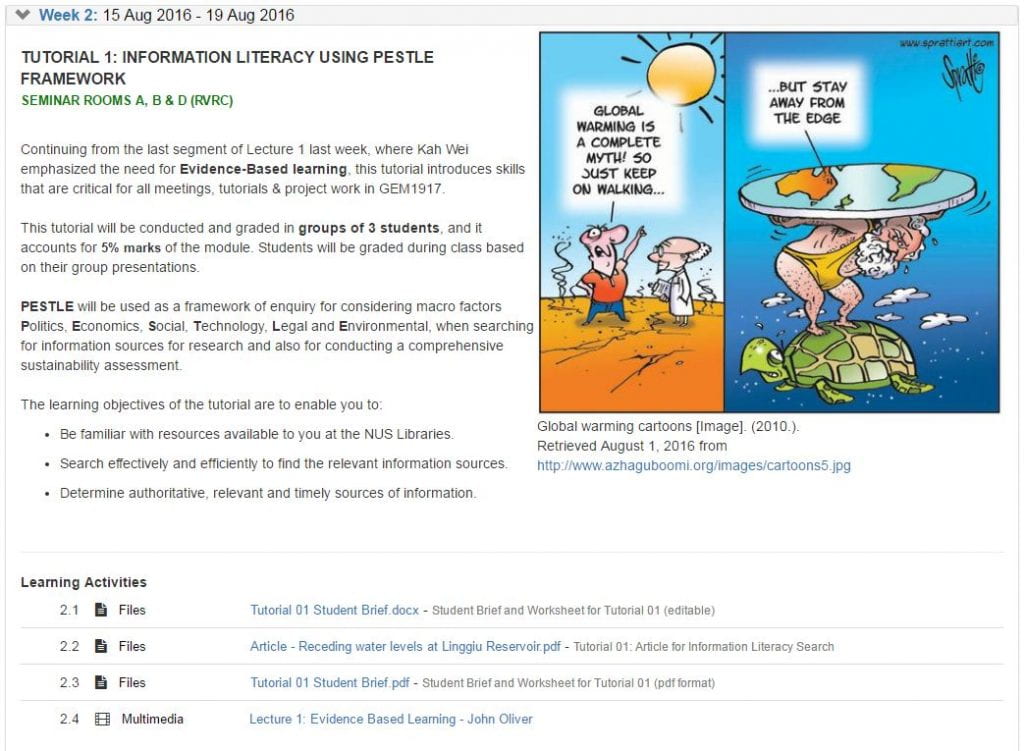Deliver Content→ Share Content→ Provide module roadmap
The Learning Flow in LumiNUS helps you to organise your module information into weekly schedules or topical schedules. You can include week-by-week or topic-by-topic tasks; assignments, readings and other learning activities that you want students in your class to review before and after your lectures and tutorials.
The learning flow is a plan or a road map of what your students need to learn and how it will be done effectively before, during and after the face-to-face class time. To do this, the first and most important step is to identify the learning objectives for each class or topic keeping in mind your learning outcomes for the module.
Sample Lesson Plan for a Week/Topic
An effective lesson plan tightly integrates the following three key components:
1. Intended learning outcomes (ILO)
Thinking about the following questions, will provide a good starting point:
- What is the topic of the lesson?
- What do you want your students to learn and be able to do at the end of the lesson?
- What do you want your students to take away from the lesson?
2. Teaching/learning activities (TLA)
Plan the specific learning activities and think of different ways of explaining the material (e.g., real-life examples, analogies, visuals, infographics, videos, simulations). Think about the following to design the learning activities:
- What can you do to explain/illustrate the topic?
- How can you engage students in the topic?
- Are there relevant real-life examples, analogies, or situations that you can use help students understand the topic?
- What can students do (self-direction) to help them understand the topic better?
3. Assessment tasks (AT)
Plan for ways to check on student understanding. Thinking about the following questions will give you ideas on how to assess:
- What can you ask students to check for their understanding?
- What can you do to get students to demonstrate their understanding?
Specifying concrete student learning outcomes will help you determine the kinds of TLAs you will use, while those activities will define how you will check whether the ILOs have been accomplished using the designed ATs. Keeping students informed of what they will be learning and doing in your module will help keep them more engaged and on track.

